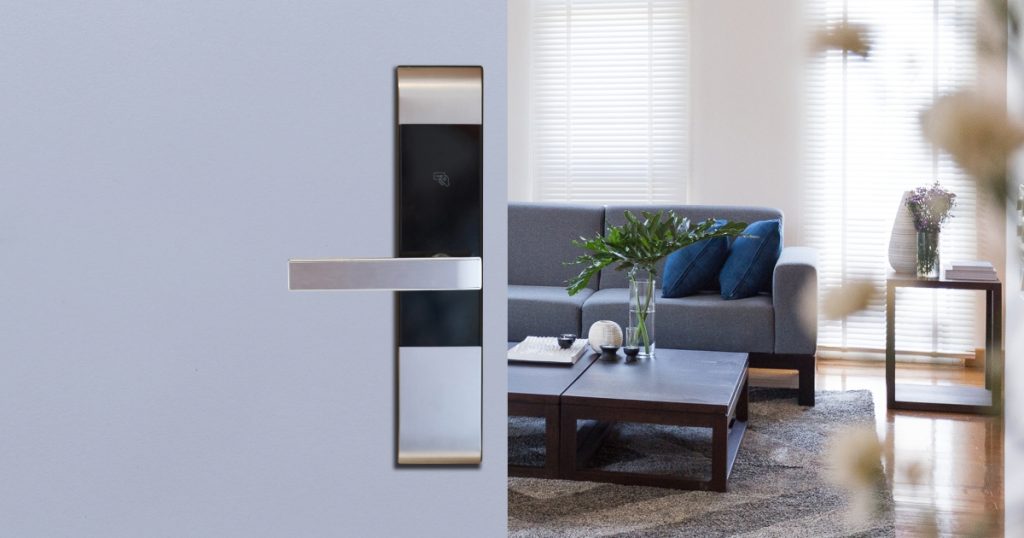Locks are an essential component of home and business security. They are designed to protect your property, belongings, and loved ones from unwanted intruders.
But with the vast array of locks available in the market, choosing the right one can be an overwhelming task.
This comprehensive guide will help you understand the key factors to consider before buying new locks, from the locksmith’s perspective. We will discuss various types of locks, their features, and how to choose the best one for your needs.
Understanding the Basics of Locks
Components of a Lock
Before diving into the world of locks, it is essential to understand the basic components that make up a lock. These include:
- Cylinder: The cylinder is the part of the lock where the key is inserted. It contains the pins, springs, and tumblers that work together to grant or deny access.
- Bolt: The bolt is the metal piece that slides into the door frame when the lock is engaged, securing the door in place.
- Keyway: The keyway is the channel inside the cylinder that accommodates the key.
- Strike Plate: The strike plate is the metal piece attached to the door frame that the bolt slides into when the door is locked.
Types of Locks
There are several types of locks available in the market, each designed for specific purposes and levels of security. Some of the most common ones include:
- Padlocks: Padlocks are portable and versatile locks that can be used for various purposes. They come in different sizes, shapes, and security levels.
- Deadbolts: Deadbolts are one of the most secure types of locks used for residential and commercial doors. They are operated using a key or a thumb-turn from the inside.
- Knob Locks: Knob locks are commonly used for interior doors in homes and offices. They are less secure than deadbolts and are not recommended for external doors.
- Lever Handle Locks: Lever handle locks are designed for ease of use and are commonly found in commercial settings where accessibility is essential.
- Mortise Locks: Mortise locks are installed within a door, providing a high level of security. They are commonly used in commercial settings and older residential properties.
- Electronic Locks: Electronic locks use keypads, cards, or biometric data to grant access, providing added convenience and security.
Factors to Consider When Buying New Locks
Security Level
The primary purpose of a lock is to provide security. Therefore, it is essential to consider the level of security you require before choosing a lock.
Locks are generally graded on a scale of 1 to 3, with Grade 1 being the highest level of security and Grade 3 being the lowest. Deadbolts, mortise locks, and high-security padlocks typically offer the highest levels of security.
Purpose and Location
The purpose and location of the lock are crucial factors to consider when buying new locks. For instance, exterior doors require more robust and secure locks than interior doors. High-security locks are ideal for front and back doors, while knob locks and lever handle locks may be more suitable for interior doors.
Budget
Locks come in a wide range of prices, depending on the type, materials, and security features. It is essential to set a budget for your lock purchase, keeping in mind that high-quality locks may come at a higher price but offer better security and durability.
Lock Material
The material used in manufacturing a lock can impact its durability, security, and overall appearance. Common lock materials include brass, steel, and zinc alloy.
Brass locks are popular for their aesthetic appeal and resistance to corrosion, while steel locks offer superior strength and durability. Zinc alloy locks are a cost-effective option that provides a balance of strength and corrosion resistance.
Ease of Installation
Some locks are easier to install than others, which can be a significant factor to consider if you plan on installing the lock yourself. Deadbolts, padlocks, and knob locks are generally easier to install, while mortise locks and electronic locks may require professional installation due to their complexity.
Key Control
Key control refers to the ability to limit the duplication of keys for your lock. High-security locks often come with restricted keyways and patented key designs that make it difficult for unauthorized individuals to duplicate keys.
Consider the level of key control you require, especially for exterior doors and areas with sensitive information or valuable items.
Compatibility with Existing Hardware
Before purchasing a new lock, ensure that it is compatible with your existing door and hardware. Consider factors such as door thickness, backset measurements, and the size and shape of the lock’s components.
Popular Lock Brands and Their Features
There are numerous lock brands available in the market, each offering unique features and security levels. Some of the most popular lock brands include:
- Yale
Yale is a well-known lock brand that offers a wide range of locks for residential and commercial use. Their products include deadbolts, padlocks, electronic locks, and more. Yale locks are known for their reliability, durability, and high-security features.
- Schlage
Schlage is another reputable lock brand that provides various types of locks, such as deadbolts, knob locks, and smart locks. Schlage locks are designed for both residential and commercial applications and are known for their robust construction and advanced security features.
- ASSA ABLOY
ASSA ABLOY is a leading global provider of high-security locks and access control solutions. Their product range includes mortise locks, padlocks, and electronic locks for various applications. ASSA ABLOY locks are renowned for their quality, durability, and innovative security features.
- Kwikset
Kwikset is a popular lock brand that offers a variety of locks, including deadbolts, electronic locks, and smart locks. Kwikset locks are designed for residential use and are known for their ease of installation, affordability, and SmartKey technology, which allows you to rekey your lock without a locksmith.
Consult a Professional Locksmith
While this guide aims to provide you with valuable information on selecting the right lock for your needs, it is always a good idea to consult a professional local locksmith before making a purchase.
A professional locksmith can assess your specific security needs, recommend suitable lock options, and ensure proper installation for optimal security and functionality.
Conclusion
Choosing the right lock is essential for ensuring the safety and security of your property, belongings, and loved ones.
By considering factors such as security level, purpose, location, budget, material, ease of installation, key control, compatibility, and popular lock brands, you can make an informed decision when buying new locks.
Remember, it is always a good idea to consult a professional locksmith for expert advice and assistance in selecting and installing the best lock for your needs.

